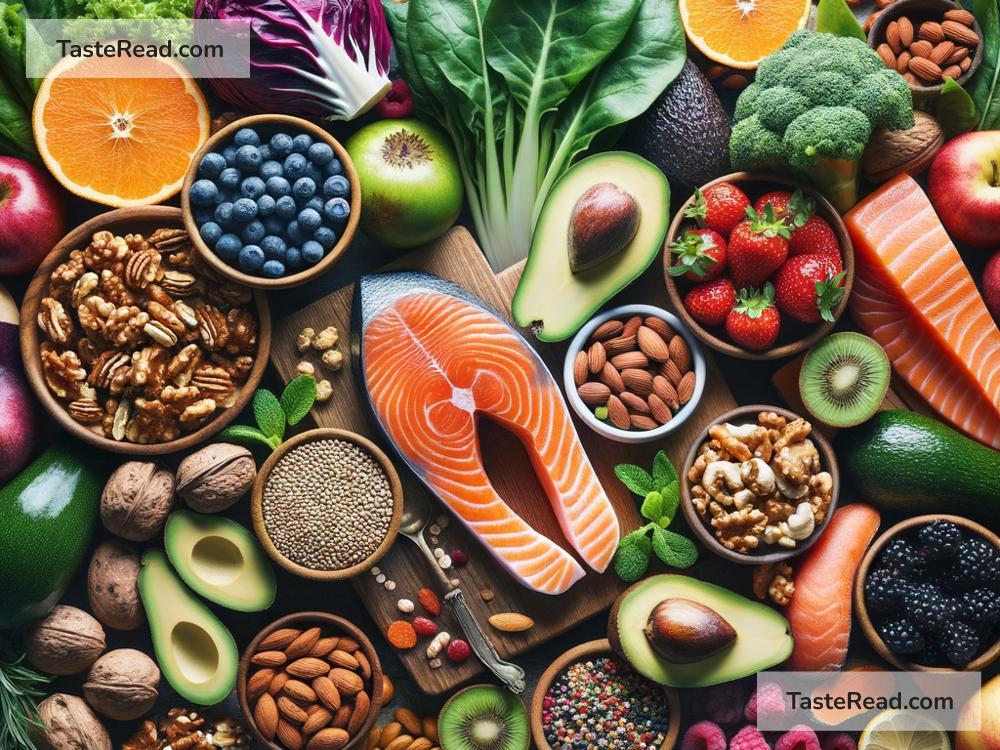Foods for Menopause Management: Simple Dietary Tips for a Healthy Transition
Menopause is a natural phase in every woman’s life. It marks the end of menstrual cycles and is usually accompanied by changes in hormones. For many women, menopause can cause symptoms like hot flashes, mood swings, weight gain, sleep issues, and fatigue. While these changes are completely normal, dealing with them can sometimes feel overwhelming.
The good news is that food can play a key role in making menopause easier to manage. Eating a balanced diet doesn’t just keep your body healthy—it can also help reduce menopause symptoms and make you feel more comfortable. Let’s look at some of the best foods for menopause management, explained simply.
1. Start with Whole Grains: Energy and Balance
Whole grains like brown rice, oats, quinoa, and whole wheat bread are incredibly helpful during menopause. They are packed with fiber, which supports digestion and keeps your energy steady. Whole grains also help regulate blood sugar levels, preventing energy crashes and mood swings. Additionally, they are rich in B vitamins, which may boost your mood and brain function.
2. Lean Proteins: Build Strength and Stay Satisfied
Protein is crucial during menopause, especially because our muscle mass tends to decrease as we age. Beans, lentils, eggs, chicken, turkey, and fish are excellent sources of lean protein. They also keep you feeling full, which can help with cravings and weight gain. Eating enough protein can also help preserve your muscle health and keep you strong.
3. Plant-Based Proteins: A Hormone-Friendly Choice
Some plant-based proteins, such as soy, tofu, edamame, and flaxseeds, contain phytoestrogens. These are natural compounds that mimic estrogen and may help balance hormone levels. For women experiencing hot flashes or night sweats, adding modest amounts of soy products can bring comfort. However, it’s best to consult your doctor before making major changes, especially if you have thyroid problems.
4. Healthy Fats: Support Your Brain and Hormones
Healthy fats, like those from avocados, nuts, seeds, and olive oil, are important for maintaining hormonal balance and brain health. Omega-3 fatty acids, found in fatty fish like salmon, mackerel, and sardines, are particularly beneficial. They may reduce inflammation, support heart health, and help improve mood and mental clarity. A small handful of nuts or seeds as a snack can also keep hunger at bay while providing nutrients.
5. Calcium-Rich Foods: Protect Your Bones
As estrogen levels drop during menopause, women are at a higher risk for bone loss, which can lead to osteoporosis. Calcium plays a key role in keeping bones strong. Dairy products like milk, yogurt, and cheese are well-known sources of calcium. If you prefer plant-based options, almonds, kale, broccoli, and fortified plant milks (like almond or soy milk) are excellent alternatives. Pairing calcium with vitamin D (which is found in eggs, fish, and sunlight) will further support bone health.
6. Fruits and Vegetables: Nutrient Powerhouses
Eating a variety of colorful fruits and vegetables is one of the best ways to stay healthy during menopause. These foods are packed with vitamins, minerals, fiber, and antioxidants, which protect your body from long-term health problems like heart disease and aging-related issues. Berries, oranges, spinach, carrots, and bell peppers are fantastic choices to include in your meals. They also help you feel more energized and support good digestion.
7. Hydrating Foods: Combat Dryness and Flares
Dehydration is fairly common during menopause due to hormonal fluctuations. Staying hydrated is important, not only by drinking water but also by eating foods with a high water content. Cucumbers, watermelon, celery, and soups are great hydrating choices. Avoid too many caffeinated or sugary drinks, as they may contribute to dehydration and discomfort.
8. Limit Sugary and Processed Foods: Reduce Symptoms
While it’s tempting to reach for sugary snacks or processed options, these foods can aggravate menopause symptoms like mood swings, weight gain, and energy dips. Refined sugars can cause blood sugar spikes and crashes, leaving you feeling more tired. Instead, choose natural sweeteners (like honey or fruit) and focus on whole, unprocessed foods.
9. Drink Herbal Teas: Natural Comfort
Herbal teas can be soothing during menopause. Chamomile tea can aid sleep and relaxation, while peppermint tea can calm bloating or indigestion. Some studies suggest that black cohosh or red clover tea may have benefits for reducing hot flashes, although always speak to your healthcare provider before trying new herbal remedies.
Final Thoughts: Small Changes, Big Impact
Menopause is a big change, but the foods you eat can make a serious difference in how you feel during this chapter of life. By focusing on whole grains, lean proteins, healthy fats, and plenty of fruits and vegetables, you can stay healthy and manage symptoms more effectively. Don’t forget to stay hydrated, move your body regularly, and rest when you need to.
Lastly, remember that every woman experiences menopause differently. Experiment with these food suggestions to find what works best for you. If you’re ever in doubt, consult a doctor or nutritionist to make sure your diet supports your unique needs.
Menopause may be a new chapter, but with the right foods, it can be one of health, balance, and well-being. Cheers to eating well and feeling great!


